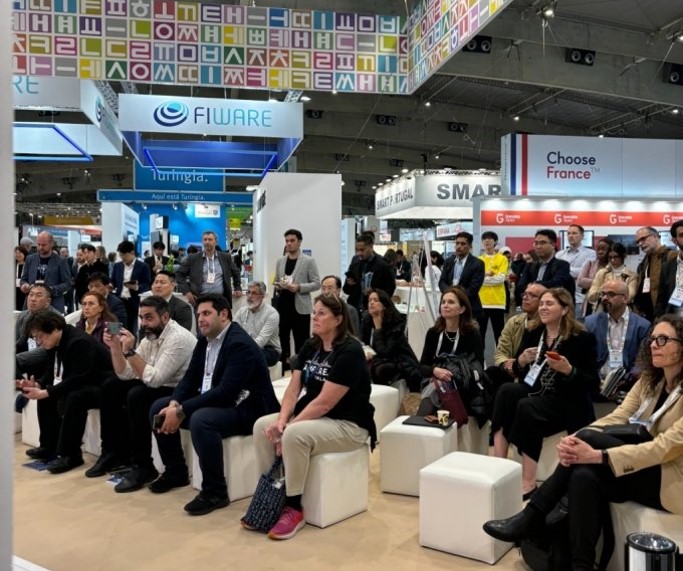Ministry of Land, Infrastructure, and Transport, Smart Cities Association, etc. Local governments, public institutions, and companies operate an ‘integrated Korean pavilion’

“Mehor (the best, mejor)”. K-Smart City's world-class technology once again drew admiration from city officials around the world.
According to the Ministry of Land, Infrastructure, and Transport and the Smart Cities Association on the 9th, MOLIT operated an integrated Korean pavilion at the '7 Smart City Expo World Congress (SCEWC)' held in Barcelona, Spain for three days from the 2023th of this month. The integrated Korean pavilion captured the attention of visitors during the expo period by showcasing the status and progress of representative projects of Korean smart cities that have been developed so far. Local governments such as MOLIT, Busan City, Chungcheongbuk-do, Daegu City, and Pohang City, public institutions such as Korea Land and Housing Corporation (LH) and Korea Water Resources Corporation, research institutes such as Korea Agency for Infrastructure Technology Advancement (KAIA) and Korea Research Institute for Human Settlements, companies, etc. 20 Many places participated.
In fact, the Korean smart city, which the government has been promoting since the early 2000s, is considered the most advanced type of future city in the world. While Korea is a latecomer in many other urban fields, it is evaluated that smart cities are relatively leading in terms of technology development and actual implementation. Currently, a smart city national pilot smart city creation project is being promoted in Busan and Sejong, respectively. The size of the business amounts to 10 trillion won. In Sejong, a 'smart transportation service' that allows users to enjoy universal transportation rights without a privately owned car is being demonstrated, and in Busan, a 'smart village' that applies actual information and communication technology (ICT) is being demonstrated.
In particular, Busan Smart Village is Busan's representative 'Living Lab' demonstration complex that first applies lifestyle and new technologies that will be implemented in smart cities in the future. Every year, government and smart city officials from around the world visit. A total of 2 households and 6000 people live in an area of 56 m200 (approximately 5 pyeong) for XNUMX years, securing the data necessary for smart city operation.
It is said that visitors from all over the world who visited the Integrated Korea Pavilion also showed great interest in the appearance of 'Smart City Busan'. An official in charge of operating the Korean pavilion said, “At the Busan Smart City Living Lab, the response was that it was amazing and surprising that things that were thought to be part of city life in the distant future were happening as part of everyday life,” adding, “Along with the actualization technology, there were also many questions about ways to protect residents’ personal information.” . The Korean pavilion introduced the response to regional extinction and smart emergency medical services in North Chungcheong Province under the theme of 'Exploring other smart cities in Korea', as well as the process of introducing urban mobility in Pohang City.
About 20 domestic ventures and startups, including Motov, Schaffengott, Gomirang, and Fluxity, have also laid the foundation for entering the global market. LBSTEC also introduced in detail examples of the development of pedestrian navigation services for the visually and physically impaired and the transportation vulnerable, as well as property rights and regulatory issues. In addition, smart streetlight company 'Streetlight Story', speeding prevention system developer 'Quantum Gate', drone-based integrated control system 'Clover Studio', and demand response transportation (DRT) service 'Autocrypt' also showcased their own technologies and products. .
Smart City Expo World Congress, launched in 2011, is the world's largest and most influential smart city international event. This year, under the theme of 'The advent of a new urban era,' more than 600 experts and officials from around the world shared the appearance of a new city and the technologies that will realize it. More than 130 companies and cities from over 860 countries showcased their respective smart city-related technologies. A total of eight conferences were held by topic, including △implementation technology △energy and environment △mobility △governance and finance △inclusive and shared city △public infrastructure and construction △marine economy △safety and security.



